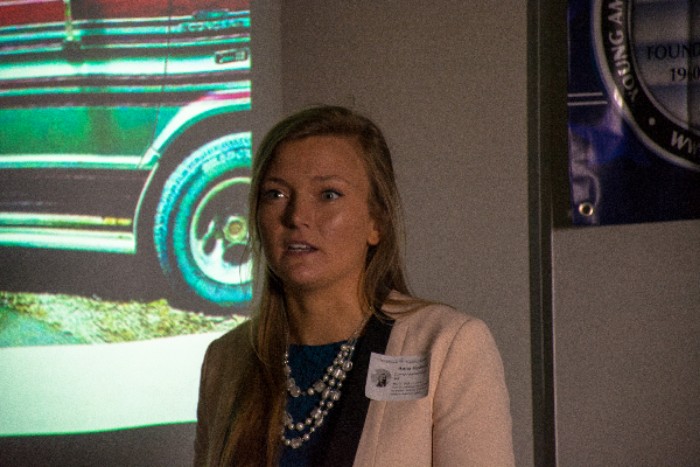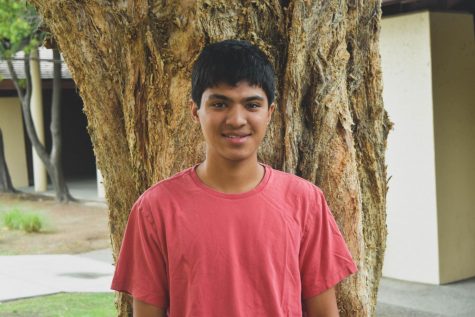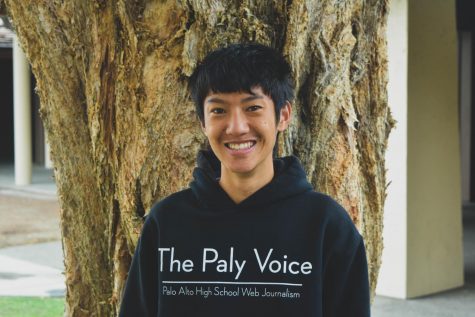
“All of us here today are survivors of Roe v. Wade. We are survivors of the pro-choice movement. And we might tout pro-choice propaganda, but what saved us is what we’re fighting against. Some mother that chose that our life had value, and because of her choice, we were allowed to live.”
Such was the message of Anna Hoduski, an anti-abortion activist who presented to Palo Alto High School students at Flex Tuesday. Hoduski, who has biked and run thousands of miles to raise awareness for her cause, spoke to students about both her journey of advocacy as well as the subject of abortion itself.
The event was organized by the school’s chapter of Young Americans for Freedom, a national organization that promotes political conservatism. It attracted about 15 Paly students and a handful of adults.
Although it was originally set to take place in the Media Arts Center, according to the event flyer, the presentation was later moved to room 404.
Hoduski dedicated a significant portion of the presentation to attempting to humanize unborn babies. Occasionally, she would pull out inches-long model babies from a box in an effort to showcase the intricate features of developing babies.
Hoduski also supported her argument by invoking the number of unborn babies that have been aborted since the Roe v. Wade decision, eventually comparing the practice and magnitude of abortion in the United States to the Holocaust. She also drew parallels between the responses to abortion and responses to Holocaust.
“After the Holocaust ended, journalists went to Europe … Do you want to know what question they asked people?” Hoduski said. “‘Why did you do nothing? Why?’ … Do you want to know what their responses were? ‘I didn’t know how bad it was,’ so they weren’t educated, and ‘I didn’t have enough money,’ and ‘I didn’t know how I could help.’”
One of the adult attendees, Gabriela Gavande, who is a lecturer at UC Santa Cruz, later voiced her agreement with the parallels to the Holocaust, and suggested that a “culture of death” — that is, abortion, in her view — can lead to catastrophic consequences.
“I’m European — I’m from Germany … before we came to the Holocaust, we had abortion, it was this whole culture of death,” Gavande said. “The National Socialists were really heavy on that, they loved that … I think it’s another stepping stone. To ask how did we get to the Holocaust, well, there was something that preceded that for decades before that [the Holocaust]. Life wasn’t valuable.”
After the presentation, Hoduski opened herself up to questions from the audience. At times, the discourse between the audience and Hoduski grew tense, with charges of condescension coming from both sides. One student in attendance, junior Callum Day Ham, engaged with Hoduski in repeated debates about “the line” during pregnancy at which abortion is acceptable.
Despite the contention and his personal opposition to Hoduski’s views on abortion, Day Ham said the presentation served as a useful platform for debate.
“I thought it was an interesting event, we don’t get many people like this coming here, it’s a new perspective, and it’s always good to debate,” Day Ham said. “I disagree with it — I think it was a little bit annoying because there were questions that would be asked and she [Hoduski] would flip them on us, which is a perfectly fine thing to do … but some people here tried to answer those questions and she wouldn’t answer the question before.”
Pablo Ruiz Tobaruela, the co-founder and vice president of Paly’s YAF, expressed similar sentiments about the presentation and the ensuing debate.
“I think it was very beneficial to have a discussion at Paly because often times the topic of abortion is not really talked about — it’s a really taboo issue,” Ruiz said. “Both sides of the argument were able to express their opinions, and I do think that to some level, middle ground was found.”
Editors’ Note: The Associated Press Stylebook, to which The Paly Voice adheres, says to use the language “anti-abortion” and “abortion rights” to refer to the competing perspectives on the abortion debate.



